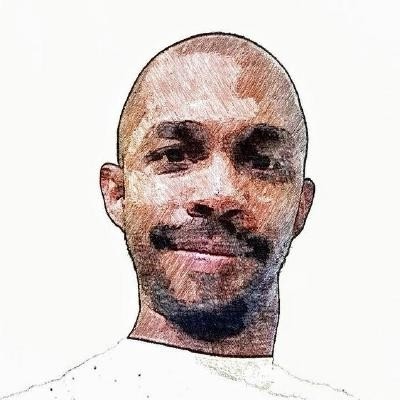New Exciting Times
New Exciting Times Indeed
In hindsight, a lot has passed since I last wrote in this blog, up to this point in May 2025. I’d like to list what I believe are some of the most significant events on a global, national, and personal scale:
- In 2022, OpenAI launched ChatGPT, with a team including ex-Google developers, starting an AI revolution.
- I decided to revisit a student-era project: creating a web app for analyzing dreams. I called it Somnialysis.
- In 2023, I traveled to Boston for TechCrunch Early Stage 2023 to network and show my project to some strangers. Back then, it seemed really innovative, and people liked it. I received an invitation to apply for the Roux Institute Founder Residency in Maine. Long story short, I was trying to create a business from a product that might not have been solving a real problem for society.
- Google, Meta, and many other companies started an AI race to catch up with OpenAI.
- Trump won a second mandate, backed this time by big names in Tech.
- A rogue company in China called DeepSeek launched a distilled version of ChatGPT, using non-human RLHF and not even the latest hardware, offering AI services for dirt-cheap prices. Other chinese companies followed.
- Cursor, Windsurf (hypothetical), and other AI-powered code editors became increasingly common. A company called Lovely popularized a term called “Vibe coding” allowing pretty much any non-technical entrepreneur to develop applications.
- Big Tech companies confirmed that AI would increase productivity to such an extent that they could dispense with a large chunk of their technical staff. A wave of layoffs hit the tech sector.
- Trump decided to start a trade war, initially with his neighbors, then with the entire world, making China its main target. It began a new era of deglobalization. A recession loomed for Canada, many other countries, and even the US.
- Mark Carney, who had replaced Justin Trudeau (Liberal Party) as designated Prime Minister, was confirmed in an election where, months before, the favorite was Pierre Poilievre (Conservative). He was presented as a seasoned finance professional focused on shifting Canadian policy to be less US-centric and more diversified, while leading a more moderate liberal government (to buy some votes back from the conservatives).
- Layoffs and unemployment became even more common. There was a new explosion of software companies that required fewer people, but the right ones.
So, it’s clear that things have changed, and trying to do everything the same way while expecting the same result seems unrealistic, to say the least. As I am writing these lines, I have been without a regular income for more than half a year, living off my savings—partly by personal choice and partly because of how things have unfolded. I have found that companies are nitpicking now more than ever. You can get rejected for criteria that weren’t even on the table during the interview process. For instance, one company stated the reason for rejection was their preference for someone in the same city for meetings. In that particular case, during the interviews for a remote job, I had offered to attend any necessary meetings, although they mentioned they would hold one a year, if any. Another kind of company I’ve encountered are those that, despite sending you a home exercise that is hard to solve and takes up your entire weekend, then decide not to accept you because they had already found someone cheaper. Or those that test you LIVE, without an IDE, to see if your mind is “keen” enough to remember function names by heart, against the clock, in one of the many languages I know. They seem more interested in finding a “mentat” than a reasonable developer who can distinguish a poor design from a scalable, readable, and maintainable one. My theory is that with AI, this is truer than ever.
So, I cannot change other people’s vision of doing things, but I can do something for mine. My vision, based on my experience and how the market is evolving, is that AI is going to become as standard as the cloud is nowadays. Actually, the struggle might soon be not in doing certain things with AI, but in doing them the traditional way, using algorithms, although even then, AI will likely assist. Those businesses that are not using AI at this very minute are already at a great disadvantage. That’s where I find the opportunity to put my more than 15 years of experience to work: no more apps for analyzing dreams, but solving real business problems. No more creating a logo, a website, a mission, and a “build it and they will come” mentality. This time, I will go to them, analyze the problem, show them what can be built to solve them, and around that, create everything else. Then, where my skills are most needed and best utilized, I will be able to innovate.
I understand that most people will keep their 9-to-5 jobs, and I would never judge them. Imagine having kids, a mortgage, a car loan, and never having started a business before. Also, life, over time, takes a toll on your dreams and energy. I have learned that the bigger the reward, the harder the work. Those who stay on the easy path will have to compete with all others who won’t take the risk of entrepreneurship, and that will be the majority of people; so you decide which of these two paths is riskier. I have lost so much that I’d rather lose again, but for the right reasons. No matter the outcome, I know I won’t regret it.
I don’t know exactly how exactly to do it yet, but I have many ideas in my head that I cannot shake off. It’s like an obsession, and no matter what I try to do, I seem guided towards this hard path. Let’s do it.

Leave a Comment